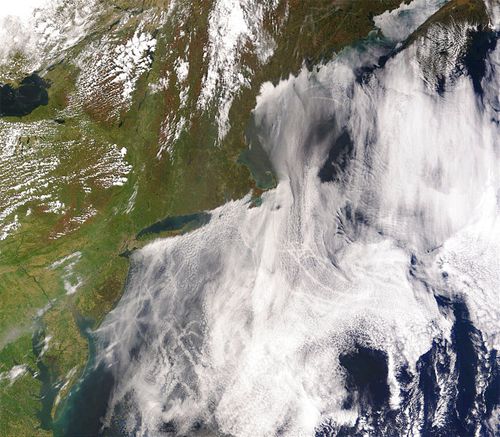I’ve never really considered myself an environmentalist. I don’t live a particularly “green” life, though I recycle, don’t litter, and don’t leave lights on or other electronic devices running. But I increasingly find opposition to climate science (I don’t think they are skeptics as much as scoffers) infuriating.
I don’t even know quite what is motivating this post at the moment. But I have a family member with a science based Ph.D. who consistently raises his opposition to the findings of climate scientists every time he sees me. He argues that he’s “read the science” and that his work has always been about modeling and that the models they use cannot hope to capture the complexity of the phenomenon of climate change and that ultimately belief in anthropogenic climate change is nothing more than belief, even religious belief. This last point resonates with those who often compare the dire predictions of climate scientists and environmental activists to the apocalyptic speculation that has occurred so frequently across western history.
Now, apocalyptic speculation is something I actually know about. I can take you through Joachim of Fiore’s tripartite division of history and the ensuing distinctions between pre-millennial and post-millennial dispensationalisms. I’ve read Carion’s Chronicle and the Testament of Elias, which blended Jewish and Christian eschatologies in the 16th century and can hold forth on the role of the Fifth Monarchy men and Menassah Ben Israel’s The Hope of Israel in 17th century English politics. I can explain the kabbalistic underpinnings and talmudic calculations of Nathan of Gaza and Shabbtai Tzvi, and then the subsequent anti-nomian movement of Jakob Frank. And I can testify that climate science has nothing to do with these imaginative extrapolations of prophetic texts into particular historical contexts.
Climate science isn’t about applying authoritative religious texts to historical contexts in apocalyptic, i.e. revelatory ways. It’s based on the best interpretations of observable phenomena and employs the scientific method. Sure, predictive modeling is not as precise an application of the scientific method as the diagnosis of cause. It entails more inference. And if the scientific method never claims to be beyond the possibility of error, predictive modeling is an application with even more potential to get it wrong until it self-corrects. And yet, if 97% of cardiologists agreed that I needed a surgical procedure or my cardio-vascular system would blow itself out within a short time, and that this situation was already one they would classify as an emergency, would I hesitate? Would you? It wouldn’t mean that they were correct beyond any doubt or that the procedure would succeed. It would mean that they were far more likely to be correct than not and that the procedure would be far more likely to engender health than impair it. Would any of us dismiss them as a self-interested and/or self-deluding community of mystics?
I accept that global climate history is an exponentially more complex system even than the body’s cardio-vascular system. And I don’t think any form of science should be accepted uncritically or without true skepticism. For the scientific method requires a healthy skepticism as constitutive of the mechanism of its process. I don’t suggest anyone accept authority blindly. But if 97% of cardiologists told me I needed that procedure immediately, would it be wise to say “hold on, I’m going to med school and then do a cardiology fellowship and read all the journals and analyze the methodologies of every article on the subject and then get back to you”? Science entails humility, the humility to admit that we may be wrong on this or that point and that we are certainly going to be wrong on some points. It entails respect for the scientific community, even as we acknowledge its fallibility. Healthy skepticism among lay folk within a democracy means not accepting the findings of a particular researcher, no matter their reputation, on its own. It means listening to more voices within a community of authorities.
So let’s go back. And let’s get a bit more dramatic. If 40% of cardiologists were to tell me that my son’s heart murmur was dangerous and required an invasive procedure, I would certainly be concerned, to hazard an understatement. And I would have to consider the minority opinion as significant. I might not have the procedure done. But I certainly would begin to consider it. If 51% were to tell me that, I’d consider it seriously, even knowing that almost half the community of authorities, of trained experts, believes otherwise. If 60%, I’d have trouble gambling on the 40% being right, even as I’d acknowledge the healthy possibility. At what point would I sign the consent form without hesitation? 65%? 70%? 75%? Would anyone in this situation really require 97% before consenting, even if consent entailed hazard and even if the procedure required significant sacrifice?

21 comments